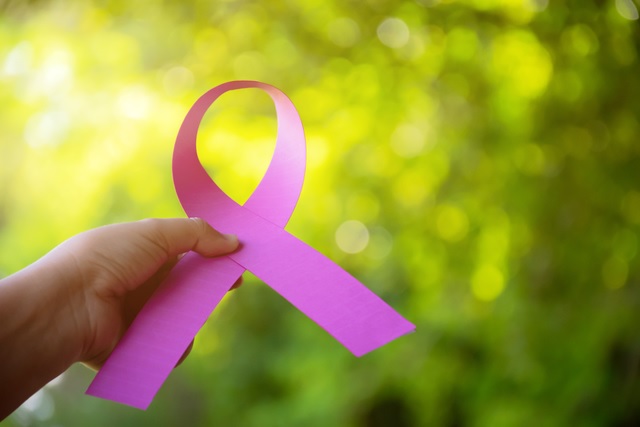Almost 95,000 Babies Could be Born Without Skilled Birth Support as Aid Cuts Put Lives at Risk - World | ReliefWeb
•New analysis released during this year’s World Health Assembly (WHA) in Geneva
•Save the Children is urging member states to adopt this year’s proposed WHA resolution on strengthening global health financing as well as the resolution on accelerating action on the global health and care workforce by 2030.
About 95,000 mothers supported by Save the Children may have to give birth without a skilled health worker present in the next 12 months putting themselves and their babies at risk, unless life-saving aid programmes continue, said Save the Children. [1] [2]
Global aid cuts have affected the aid agency’s newborn and reproductive health services in several countries, with the worst impacted including the Democratic Republic of Congo (DRC), Yemen and Nigeria, said Save the Children.
Every day in 2023 – the latest year for when data is available - over 700 women and 6,300 babies died from preventable causes related to pregnancy, childbirth and neonatal care, according to the UN.[3]
However, care and intervention by a midwife, physician, obstetrician, nurse or other health care professional in the so-called “golden minute” immediately after birth can significantly improve a mother and baby’s chances of survival and long-term health, said Save the Children. Skilled health providers can help reduce complications to babies such as lifelong neurological problems, developmental delays and seizures, while mothers are less likely to suffer from severe postpartum bleeding, infections and fistulas.
Recent UN modelling showed that universal access to midwifery care could avert more than 60% of all maternal and newborn deaths and stillbirths – amounting to 4.3 million lives saved annually by 2035 – and that even a more modest 10% increase in coverage could save 1.3 million lives each year.[4]
In the DRC, Save the Children’s large-scale maternal and newborn health programmes are at high risk of being suspended.
n February 2024 following armed clashes. In March 2025, despite pregnancy complications, Chantal gave birth to a boy safely thanks to surgery in a hospital supported by Save the Children in North Kivu, where services are now under threat due to aid cuts.
Chantal said: “As [my husband and I] have no financial means, even though I was pregnant, I couldn't go to the clinic for a check-up, fearing the bill, so I came to the clinic when I started to feel unusual pains from my pregnancy. When I was consulted at the clinic, I quickly told the man that I didn't have the financial means to go there and that they should do their best to treat me locally. I was surprised when they told me that I would be treated free of charge, even in the maternity ward. That day, I was taken to the general hospital. I don't know how to express my gratitude, because I wouldn't be able to pay the bill that would be given to me here, and I could stay for months in this hospital without any hope of getting out.”
said a temporary suspension of services earlier this year had a terrible impact on a mother:
"I saw a pregnant woman with suspected foetal distress. We referred her to the state hospital, but when she found out she would have to pay for treatment, she started crying because she had no financial means. As a health centre, we are unable to offer any support. With this project, we used to provide free care for all patients, but that's no longer possible.”
“As health leaders meet for the World Health Assembly, shrinking aid and rising debt are threatening essential health services, putting millions of lives at risk -especially among women, children, and the most vulnerable.
“It is unconscionable that funding shortfalls mean that around 95,000 mothers will be forced to give birth without a skilled health professional present, putting them and their babies at risk of lifelong complications and even death.
“Governments must act now to rethink and realign health financing: mobilising domestic resources, taxing harmful products, coordinating donor support, and investing in resilient primary health systems. The future of universal health coverage depends on bold decisions today.”
The World Health Assembly (WHA) is the ultimate decision-making body of the WHO and is held annually in Geneva to determine the health agency’s policies and funding priorities.
Save the Children is urging member states to adopt this year’s proposed WHA resolution on strengthening global health financing as well as the resolution on accelerating action on the global health and care workforce by 2030.
Save the Children trains and equips frontline health workers and uses basic, low-cost care to save newborn lives in 30 countries around the world. In 2024, our maternal, newborn and reproductive health services reached 1.4 million babies and 2.1 million mothers and women of reproductive age in 30 countries.
[1] Save the Children estimates that 95,000 births could take place without a skilled attendant present in the next 12 months from now based on analysis of the crude birth rate of the target population reached by Save the Children-supported health facilities that have either stopped work or are at risk of closure due to aid cuts in five countries affected or potentially affected by aid cuts. The top 3 affected countries are DRC (82,693); Yemen (5,231) and Nigeria (4,607).
[2] A skilled birth attendant (SBA) is an accredited health professional - such as a midwife, doctor or nurse - who has been educated and trained to proficiency in the skills needed to manage normal (i.e. uncomplicated) pregnancies, childbirth and the immediate postnatal period, and in the identification, management and referral of women and neonates for complications.
[3] https://www.who.int/news-room/fact-sheets/detail/maternal-mortality & https://data.unicef.org/topic/child-survival/neonatal-mortality/
*Names changed for anonymity.
********************************************
Aisha Majid: [email protected]
Our media out of hours (BST) contact is [email protected] / +44(0)7831 650409













